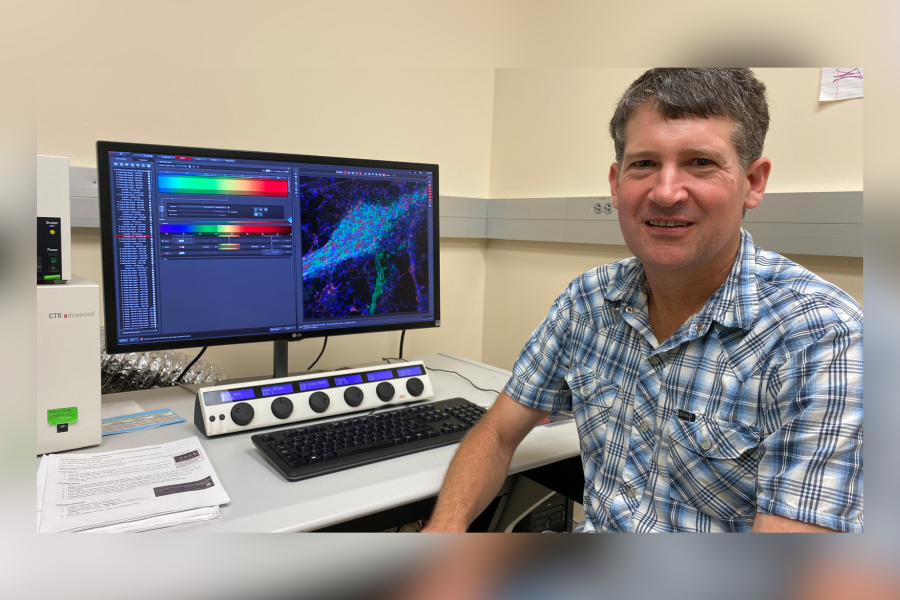
When the state built the JABSOM Kakaʻako campus in 2005, Dr. Matthew Pitts was just a graduate student in the Cell and Molecular Biology Department, hoping, like all researchers, to receive an R01 grant one day.
"This is the standard grant milestone needed to be considered an established investigator by the National Institutes of Health," Pitts said.
Pitts is one of the few who remain from the beginning days of the Kakaʻako campus, and the dream he entered with is now being realized.
Pitts was awarded an R01 grant for his research on selenium in the brain and how it's affected by methylmercury. This research could have implications for FDA guidelines around mercury and seafood.
"Mercury is a toxin of major concern, and methylmercury is the organic form that most people come into contact with, largely through seafood," Pitts explains. Mercury is toxic, but methylmercury, on a chemical basis, seems to preferentially affect the brain more than the other forms. It is highly neurotoxic if you get it up to a certain level."
Prior studies have shown that mercury and selenium have a particularly high binding affinity for each other, and that selenium supplementation can ameliorate mercury toxicity. "By binding the selenium, mercury is thought to sequester the bioavailable selenium in the brain, impairing the function of selenium-containing antioxidant enzymes and thereby increasing levels of oxidative stress," Pitts explains. "Some of these so called ‘selenoenzymes’ are essential for life and brain development, and it does seem like they are the major targets of methylmercury toxicity, so in another sense, what we find could influence dietary guidelines, but it could also further elaborate the mechanisms by which mercury is toxic."
Through the R01 grant, Pitts now has $1.6 million to investigate further an issue that could change diets in Hawaiʻi and around the globe.
"Mercury is a neurotoxin considered among the World Health Organization's top ten chemicals of public health concern," Pitts said. "While the acute effects of mercury are well chronicled, the consequences of low-dose, chronic exposure are less clear. Given that symptoms of most psychiatric disorders do not emerge until early adulthood, there is significant interest in elucidating the influence of diet and environmental exposure upon adolescent neurodevelopment and risk of psychiatric impairment. This grant will allow us to investigate the effects of prolonged, subtoxic methylmercury exposure on brain development and behavior using a rodent model. A central focus will be on the maturation of parvalbumin-expressing interneurons, a particular class of neurons that are especially prone to oxidative stress and heavily implicated in neuropsychiatric disorders, such as schizophrenia. We also will examine the magnitude to which mercury compromises activity of various brain selenoenzymes and whether extra selenium can counteract these effects.”
Pitts has always been interested in neuroscience. Last year, the NIH awarded him an R21 grant for his work on selenoprotein I and its impacts on neurodegenerative diseases. His research journey was a case study in perseverance. On multiple occasions previously, he applied for competitive NIH R-series grants (R01, R21) , only to be denied.
"At the time, I was really disheartened, but reflecting back, I can see why some of those applications didn't make it," Pitts said.
Pitts hopes that advancing to the R01 stage can inject new energy into neuroscience at JABSOM, and he wants to mentor the next generation of researchers.
"I'm hoping this R01 can continue to build neuroscience here. I know many graduate students and incoming graduates are interested in neuroscience," Pitts said. "A lot of times, there's just not funded labs doing that, so I'm hopeful that maybe this can continue for me and that we can start getting more people involved in the research. We've really got first-class facilities, we're right on the water, and I think many people would want to work here."